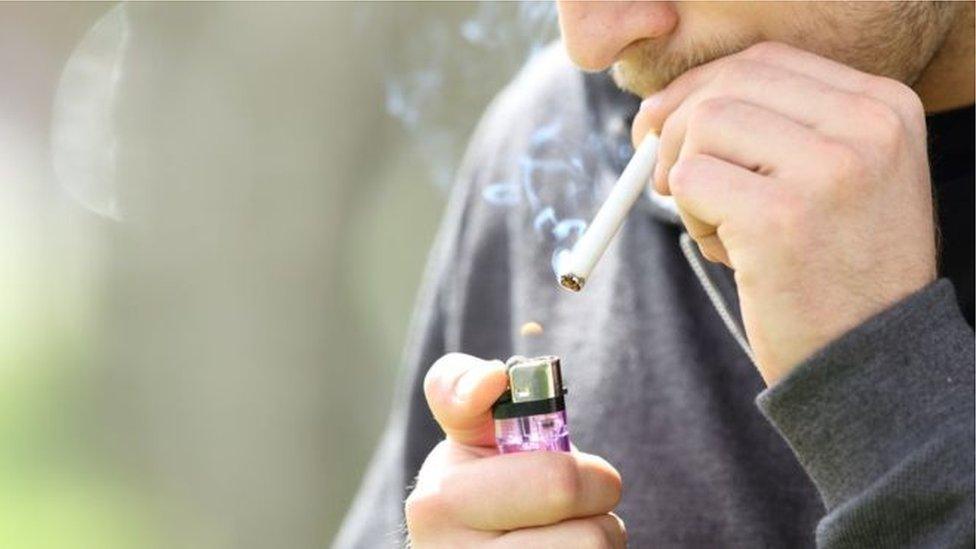Smoke levels in Scottish jails fell by 80% after ban
- Published

It was estimated about 72% of Scottish prisoners smoked regularly before the ban was introduced
Second-hand smoke levels fell by 80% inside Scotland's jails in the week after a smoking ban was introduced, research has found.
Scientists said the air quality improved despite fears that prisoners would stockpile cigarettes before the ban last November.
The study by researchers at the University of Stirling compared smoke levels to measurements taken in 2016.
It showed improvements in all 15 jails across the country.
Dr Sean Semple's team collected more than 110,000 minutes of second-hand smoke measurements.
He said: "Our study shows improvements in the levels of second-hand smoke in every prison in Scotland, with an average fall of 81%.
"This is similar to the scale of change observed when pubs became smoke-free in 2006 - and the concentrations of fine particles in prison air has now reduced to levels similar to those measured in outdoor air in Scotland.
"This research confirms that exposure to second-hand smoke has been drastically reduced and, ultimately, this will have a positive impact on the health of prison staff and prisoners."

Smoking has been banned in most enclosed public spaces in Scotland since 2006.
But, until the jail ban came into force, prisoners were still permitted to smoke in their cells as long as their doors were closed.
It was estimated about 72% of Scottish prisoners smoked regularly before the ban was introduced.
Vaping is still allowed and the Scottish Prison Service (SPS) has offered e-cigarette kits free of charge to prisoners who want them.
Improved health
A Scottish Prison Service spokesman said "All Scottish prisons went smoke-free on November 30 2018, and there have been no significant incidents as a result.
"This amazing achievement is a testament to the contribution made by all of our staff, especially those on the front line, and the cooperation of those in our care."
Debbie Sigerson, organisational lead for tobacco in NHS Health Scotland, said it was hoped the ban would improve health of people who live and work in prisons.
She added: "We are delighted that the results from this study... shows that one factor that impacts on that harm - exposure to second-hand smoke - has significantly reduced.
"Everyone has a right to live in a smoke-free Scotland and today's results show that we are one step further along the way to getting there."